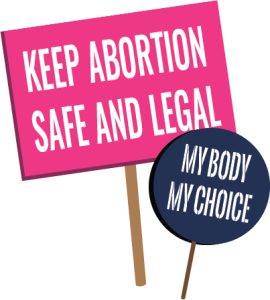The implications of June Medical Services v. Gee
The Supreme Court announced on Oct. 4 that it will hear June Medical Services v. Gee, a case that challenges a 2014 Louisiana law requiring abortion providers to have admitting privileges at hospitals within 30 miles of the provider.
Those who support the law claim that its purpose is to protect women so if complications from their procedure arise, they will have access to hospital care. This is the first case concerning abortion that the court will hear with newly appointed Justice Brett Kavanaugh on the bench.
Although Roe v. Wade sets a nationwide precedent that protects abortion access, laws similar to the one being challenged in June Medical Services v. Gee are rampant through state governments in the United States.
Their purpose, although often claimed to protect the health of women, is merely to make it more difficult for women to get an abortion altogether. They are a segue to getting rid of Roe v. Wade, whether through actual overturn of legislation or making abortion restrictions so prevalent that abortions are almost impossible to obtain.

A nearly identical case to June Medical Services v. Gee, Whole Woman’s Health v. Hellerstedt, was brought to the Supreme Court in 2016. The landmark Texas bill also challenged the mandating of clinics to have admitting privileges at a hospital within 30 miles of the clinic. The court ruled that doctors with admitting privileges at a nearby hospital put an “undue burden” on women who were forced to drive hundreds of miles to an open clinic to undergo the procedure.
The principles of both June Medical Services v. Gee and Whole Woman’s Health v. Hellerstedt are incredibly similar. However, a critical difference between the two cases are the justices on the bench of the Supreme Court. Since Whole Woman’s Health, Donald Trump has appointed two justices who are overwhelmingly likely to side with conservative ideals concerning abortion.
June Medical Services v. Gee may be the start to making access to abortion as difficult as it was before Roe v. Wade came into law.
The nature of June Medical Services v. Gee poses a direct challenge to women and their rights to their own bodies. While these laws appear to make abortions safer, they are just in place to make abortions more difficult to obtain.
In Linda Greenhouse’s piece for The New York Times, she emphasizes, “The requirement is nothing more than a ploy to enable a state to destroy the abortion infrastructure while pretending to be protecting the very women whose constitutional right the requirement is eviscerating.”
These laws are not made to protect women. Requiring that clinics receive “admitting privileges” forces clinics to shut down, resulting in fewer clinics within a state, and making it a long and costly trip for a woman to get an abortion.
Viewing restrictions such as admitting privileges as a protection is simply ignorant; these laws are an attack on women.
I can’t help but look at these cases and be scared. I can’t help but fear for my body, and the bodies of other women, because they are being treated as political war ground by politicians. I especially can’t help this feeling after reading Chanel Miller’s new novel, “Know My Name,” a memoir discussing her assault and the shortcomings of the legal system in handling her case.
Miller’s novel describes her emotional journey of being a rape survivor. I can’t help but think of all the women like Miller, whose bodies have been invaded. All the women who are impregnated as a result, and will be forced to keep a child of their rapist due to the progression of restrictive abortion laws, that don’t exclude instances of rape or incest, merely forcing a further violation on their bodies.
These laws and cases pose the threat down the road to completely end abortion access without ever banning the procedure itself.
I’m aware of the morals of the Jesuit community and that I attend an institution whose leaders may be opposed to my opinions. But the Jesuit community prides itself on intellectual rigor and debate among a diversity of opinions, and I will participate in this discourse until women’s bodies are not being governed by anyone but themselves.













































